For this post, I’d like to introduce my friend and peer Tiffany Swedeen. Tiffany is a talented and multifaceted RN who works in the Northwest. Tiffany’s rich experience and her journey into and through a difficult period of life inspired me to share her vision and work in this post.
Job Burnout Took Me By Surprise
As an eager new nurse working in acute care in 2005, I wrote an article on ‘Job Burnout” for my department’s nursing newsletter. I believed my suggestions would encourage the more seasoned and weary staff to seek self-care. Little did I know how desperately I would one day need to take my own advice.
Soon after my nurse residency ended, I was back in school, working extra shifts, participating in multiple committees, and doing volunteer work. At home I was raising my daughter as a single parent, had gone through a second divorce and was caring for my terminally ill father. This amount of pressure seemed normal to me. Unwilling or incapable of managing it, I figured I’d be immune to the consequences if I just barreled through with my head down. Elitism and competition in the profession contributed; a part of me believed that my stress level directly correlated to my credibility and value. ”No Pain, No Gain” seemed to apply from nursing school onwards. The ability to “function” in a high stress environment on little sleep became synonymous with pride and self-worth.
It might not have been obvious to my family or colleagues that I was in agony. I hid it well. I was ashamed, demoralized, and afraid to be seen as weak. I was terrified of losing my job and my license. When circumstances felt too out of control, I’d drop in and see a counselor, temporarily easing my anxiety and staving off a nervous breakdown for another day. The term ‘work-life balance’ was thrown around by supervisors and administration, and I half-heartedly made attempts. Exercising and eating healthy came and went in phases. But I wasn’t consistent, and I wasn’t getting to the root of the issues. In time, I found myself unable to be present for my patients, family, friends or even myself. The work I had previously loved as a nurse became unbearable.
In 2016, after years of denial, I had to admit that Job Burnout was dangerously threatening my career and my well-being. This meant admitting to and seeking treatment for alcohol and substance abuse. I had been using and drinking as a way of numbing and avoiding emotional pain that had compiled for over a decade.
Job Burnout is an Epidemic
My story is not unique. KRONOS Incorporated implemented a survey in 2017 that indicates Job Burnout is at an epidemic level. The results found 63% of nurses report their work has caused burnout. Up to 98% admit to at least one of the key factors – their jobs are physically and emotionally demanding. Gone unchecked, burnout can have tragic consequences; substance abuse being just one that I had to overcome. It’s estimated that 10% of nurses have a drug addiction – that’s nearly 300,000 of us (1). It’s likely much higher, as this often goes unreported. Another devastating risk of burnout is suicide. Physician and nurses complete suicide more often than the average American. Burnout jeopardizes physical and mental health, and has a strong correlation with depression, anxiety, thyroid disorder, cardiac disease, fatigue, divorce and distress in relationships, and much more. (2)
Burnout is insidious, not sudden. It’s defined as a state of chronic stress leading to physical and emotional exhaustion, cynicism and detachment, as well as feelings of ineffectiveness and lack of accomplishment. (3)
Mindfulness Offers a Solution
The good news: It’s not a hopeless situation. Mindfulness is a solid solution for prevention and treatment of Job Burnout and it’s ramifications.
Early in my recovery from burnout and addiction, a counselor suggested I attend a course called “Mindfulness Based Relapse Prevention” based on Jon Kabat Zinn’s “Mindfulness Based Stress Reduction”. My first introduction to any formal meditation or mindful exercise had a lasting positive impact.. Not only did I acquire relapse prevention tools, I made huge strides in my overall well-being and ability to cope with life’s ups and downs. Changing my relationship to my thoughts through mindful practice has changed my relationship to craving, aversion, pleasure and pain. Self-care is my priority, and I pay careful attention to signs of exhaustion, indifference and irritability. My days begin and end at home with short, simple guided meditations. I meet weekly with a group to share and meditate together. (Find a meeting in your area)
While continuing my journey of recovery and researching how mindfulness could improve my job satisfaction as a nurse, I found Jerome Stone’s “Minding the Bedside: Nursing From the Heart of the Awakened Mind”. His book has been transformational for me. I carry it with me to work, and recommend it to my colleagues and the nursing students I teach. The profound and practical meditation exercises in his book are scientifically sound and beneficial for any clinical practitioner. His teaching includes how to become familiar with (not attached to) our thoughts and understand where and when we get stuck in stressful patterns. Jerome then steers us out of this cycle, which can be as simple as coming back to the present and “mindfully attending to the breath.” Throughout his book, his suggestions guide us to become more compassionate and present in our daily life – and therefore happier – at work, home, and within ourselves.
From a treatment aspect, I’m inspired as more addiction recovery programs are incorporating mindfulness and meditation. More needs to be done, especially in terms of prevention. As an instructor, I advocate for mindfulness to be implemented as a part of our basic education – long before our nursing careers take a heavy toll. The local hospital I work for offers once weekly 20 minute guided meditations – free and open to public and staff. There are growing numbers of course offerings that are industry specific, including for healthcare providers. As we continue to make progress with widespread education and accessibility, I believe mindfulness will contribute significantly to the prevention of Job Burnout and it’s aftermath.
I offer my heartfelt love for anyone currently seeking respite from the stressors of life and work, particularly my fellow nurses. I encourage all of you to incorporate a mindfulness practice into your daily routine.
A Tool for Today
One tool you can use right NOW to cultivate a calm awareness and detach from worry and stress:
The STOP Practice (from Mindfulness for Healthcare Professionals through Mindfulness Northwest, taught by Tim Burnett www.mindfulnessnorthwest.com)
- S – Stop what you are doing, put things down for a minute.
- T – Take a breath. Breathe normally and naturally and follow your breath coming in and of your nose. You can even say to yourself “in” as you’re breathing in and “out” as you’re breathing out if that helps with concentration.
- O – Observe your thoughts, feelings, and emotions. You can reflect about what is on your mind and also notice that thoughts are not facts and they are not permanent. If the thought arises that you are inadequate, just notice the thought, let it be, and continue on. Notice any emotions that are there and just name them. Recent research out of UCLA says that just naming your emotions can have a calming effect. Then notice your body. Are you standing or sitting? How is your posture? Any aches and pains.
- P – Proceed with something that will support you in the moment. Whether that is talking to a friend or just rubbing your shoulders.
RESOURCES
If you or a loved one is suffering from addiction, Job Burnout, or any signs that you may be heading that direction, please seek help. There is always hope.
For healthcare professionals/nurses specifically -most states have an “alternative to addiction” program. Yesyoucanrn.com is an informative website for nurses and substance abuse.
Non-nurses and nurses alike can also go HERE. SAMSHA is a national not for profit resource for addiction and mental health.
Refuge Recovery is a mindfulness based peer support group for addictions of all kinds. You can find them HERE.
For daily guided meditation at home – there are many free apps such as Calm, Aura, or Insight Timer. Youtube has a wide variety. Jerome Stone has an audible version of his meditations HERE
In addition – feel free to contact me with questions or to share your story. I would love to support you in any way possible.
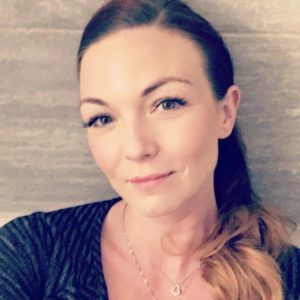 Tiffany Swedeen, RN, BSN, CPC/CPRC is a Life and Recovery Coach and a Designated She Recovers ® Coach. She is a staff nurse, and a clinical instructor. Her nursing students affectionately call her “the valium in the room” and tolerate her 3-minute guided mediations before lab practice each day.
Tiffany Swedeen, RN, BSN, CPC/CPRC is a Life and Recovery Coach and a Designated She Recovers ® Coach. She is a staff nurse, and a clinical instructor. Her nursing students affectionately call her “the valium in the room” and tolerate her 3-minute guided mediations before lab practice each day.
As a coach she works 1 on 1 to help her clients overcome limiting beliefs and live a life of radical self-love. Her passion is helping healthcare professionals in recovery from addiction. Tiffany has been in long-term recovery from mind-altering substances since May 2016.
You can find her blog at www.scrubbedcleanrn.com and learn more about partnering with her as your coach at www.recoverandrise.com. Feel free to email her with questions or comments at tiffany@recoverandrise.com.
- PubMed Health https://www.ncbi.nlm.nih.gov/pubmedhealth/PMHT0024813/
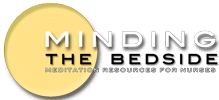
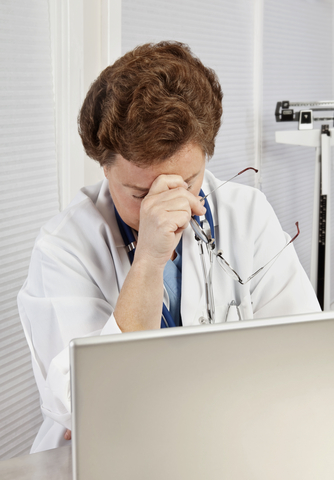
![The Buddha Walks Into a Bar…[this is meditation?]](https://www.mindingthebedside.com/wp-content/uploads/2012/04/buddha-bar1.jpg)
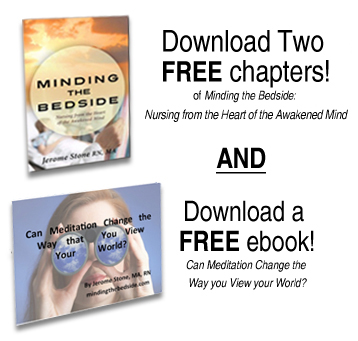
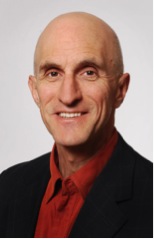
dEAR jEROME
Thanks for sharing that report with me !!!!
Your proud Mama
I appreciate you and I would like to read your next post. Thanks for sharing !!
Thanks for checking out the site. I visited your site, Christian Meditation; what a wonderful gift you’re offering your audience! May you be incredibly successful. Take care, Jerome